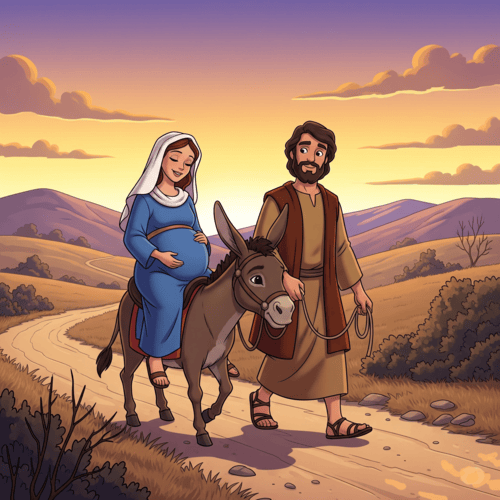Environmental Ethics: What Does the Bible Teach?
The Bible does speak to the issue of environmental ethics and our responsibility as human beings to be good stewards of God's creation. Here is a perspective on what Scripture teaches:
Environmental Ethics: What Does The Bible Teach?
From the very beginning, God gave humans a mandate to "rule over" and "subdue" the earth (Genesis 1:28). However, this was not a license for exploitation, but rather a call to wise stewardship and care for the natural order God had made.
When God created the world, He repeatedly declared it "good" (Genesis 1:4,10,12,18,21,25). The Psalms convey God's delight in the works of His hands—the earth is "full of Your creatures" (Psalm 104:24). Passages like Job 38-41 highlight how even the wildest aspects of nature are under God's sovereign providence.
God made a covenant not just with Noah's family, but with "every living creature" and the earth itself (Genesis 9:8-17). This underscores the abiding value God places on the natural world.
Throughout Scripture, the earth is portrayed as belonging to the Lord, with humans as short-term residents and stewards (Leviticus 25:23, Psalm 24:1, 1 Corinthians 10:26). We do not have absolute rights, but responsibilities to God as tenants caring for His property, the earth.
There are also practical instructions about sustainable agriculture, letting lands lie fallow, protecting biodiversity of plant and animal species (Leviticus 19:23-25, 25:1-7, Deuteronomy 22:6-7). These reflect an environmental wisdom and ethic of restraint.
Ultimately, the world belongs to God, is sustained by God, and reflects God's creative glory. Humans have been entrusted as stewards to rule over the earth in a way that reveres and preserves the natural order, biodiversity, beauty, and provisions of God's earthly creation.
Reckless pollution, despoilment, and wasteful consumption could thus be seen as violating our mandate to care for the earth as God's representatives. An attitude of humble stewardship that preserves environmental integrity and passes it on sustainably to future generations seems to be the biblical ideal.
Of course, these principles were given before radically changing modern economic and technological advances. But the Scriptural basis is there for an environmental ethic that balances sustainable cultivation and preservation of the natural world under God's sovereign dominion. This reflects worship of the Creator through our rightful stewardship over the creation.
Related Reads:
- How are Christians to deal with ethical issues in the workplace, such as being compelled to lie to a client?
- Gambling and Lotteries: Are They Compatible with Christian Values?
- Bribery and Corruption: What Do We Learn From the Bible?
- The Desire for Wealth: What Does the Bible Truly Teach?
- IP and Copyright: What Ethical Practices Should Christians Follow?
Editor's Pick

Does the Bible Clearly Teach the Deity of Christ?
Critics argue Jesus never explicitly claimed to be God. Others suggest the doctrine emerged centuries later through philosophical speculation. But [...]

The Holy Spirit’s Indwelling: How Can I Be Sure I Have It?
“Am I truly saved? How can I know for certain that the Holy Spirit lives within me?” If you’ve wrestled [...]

Did Mary Remain a Virgin? A Biblical Case Against Perpetual Virginity
The question of Mary’s perpetual virginity has divided Christians for centuries. While Catholic and Orthodox traditions affirm Mary remained a [...]

Is Occam’s Razor a Compelling Argument Against Theism?
WHY THE ARGUMENT ACTUALLY POINTS TO GOD Picture this: You're in a coffee shop debate with a confident sceptic [...]

Is the Doctrine of Justification in the Old Testament?
WAS PAUL INVENTING SOMETHING NEW OR REVEALING SOMETHING ANCIENT? Picture this scene: You’re discussing faith with a thoughtful sceptic who [...]

How God Reveals Himself to Us: General and Special Revelation
Every human heart carries an undeniable longing to know ultimate truth—to understand our place in the universe and the longing [...]

Doctrine of God and Bible Interpretation: Are The Two Connected?
Picture this: Two seasoned pastors read the same verse about God's sovereignty and human responsibility. One concludes God determines all [...]

What Did Jesus Mean: ‘I Bring Not Peace But a Sword’?
Jesus’ statement may sound perplexing to us at first read: "Do not think that I have come to bring peace [...]

The Beatitudes: The Nine Marks of Those Jesus Calls Blessed
When Jesus climbed that hillside in Galilee and began to speak, He turned the world's understanding of blessing upside down. [...]

Sacred Sorrow: Why Jesus Calls Mourning a Blessing
MAKING SENSE OF THE DIVINE PARADOX IN MATTHEW 5:4 When Jesus declared, “Blessed are those who mourn, for they will [...]
SUPPORT US:
Feel the Holy Spirit's gentle nudge to partner with us?
Donate Online:
Account Name: TRUTHS TO DIE FOR FOUNDATION
Account Number: 10243565459
Bank IFSC: IDFB0043391
Bank Name: IDFC FIRST BANK






